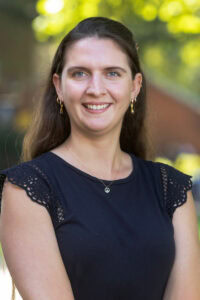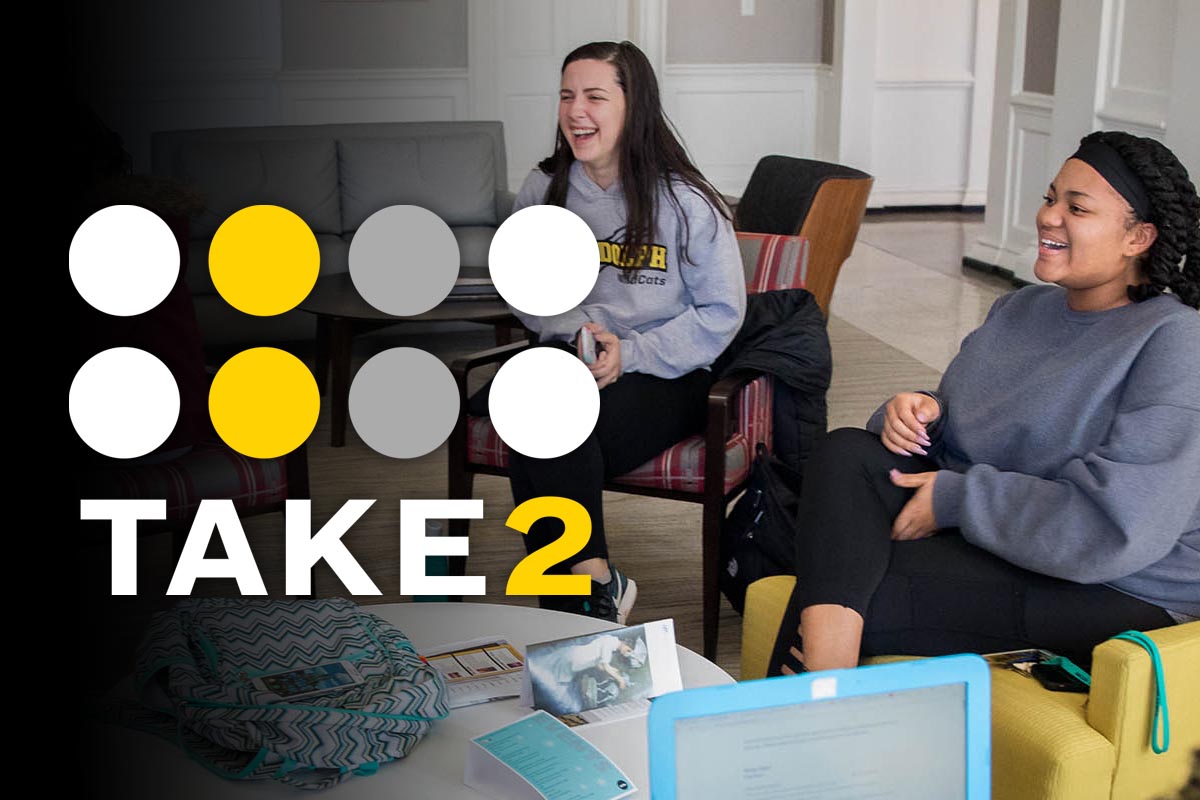Q&A with new faculty: Abigail Moore

Abigail Moore, assistant professor of criminology/criminal justice
As a student at Yale, Abigail Moore’s majors in English and women’s, gender, and sexuality studies were avenues for her to study language, power, and violence—all of which remain a focus of her research today.
“I am a cultural theorist especially concerned with what power is, how it functions, how we can describe it, and what can be done to rectify power dynamics of domination in the world,” she said. “My joint fields of sociology and criminology have been the perfect home for my current work about the language used to describe violence and race within various legal systems.”
This fall, Moore joined the Randolph faculty as an assistant professor of criminology/criminal justice and sociology. She is teaching courses for the College’s new criminology/criminal justice major.
“I’m thrilled about the opportunity to start a brand-new program,” she said. “Starting a program from scratch offers the opportunity to think very carefully about how to craft a curriculum that balances skills for the current job market, the needs of our greater society, as well as student interests.”
Moore, who spent much of her childhood in the South African country of Lesotho, earned her masters and PhD in sociology from the University of Virginia.
Prior to coming to Randolph, she taught as a visiting assistant professor of sociology at Wake Forest University.
Here is more of what she had to say about Randolph and her plans for the major:
What attracted you to the job at Randolph?
The College’s size and atmosphere make it a very special place to work. Close connections between students, faculty and staff offer unique opportunities for community and creativity, which I feel are essential components for a healthy work-life balance.
And, after living in Charlottesville for seven years, I fell in love with Central Virginia! I was very excited to move back to the Blue Ridge Mountains, the Appalachian Trail, and the James River.
What classes will you be teaching this fall?
This semester I’ll be teaching an Introduction to Criminology; Contemporary Social Problems; and Race, Class, and Crime. In all three courses we’ll be taking a constructivist approach, which means asking why and how certain phenomena get classified as crime, deviance, or social problems. Who gets to define those categories, how, and with what consequences?
We’ll especially be looking at changes in these categories throughout history—100 years ago it was illegal for women to wear trousers in most public settings; now of course most of us consider it very normal. Twenty years ago, marijuana use was illegal; now a majority of Americans favor its decriminalization. What do changes like these tell us about the cultural production of our ideas about deviance and criminality?
Describe your teaching style. What can students expect in your classes?
My teaching style is very interactive and rooted in discussion. Students should learn as much from each other as from me, and learning to listen well and clearly communicate concepts and ideas are essential to any field, but especially to those as oriented to the real-world as criminology and sociology.
I try to keep my syllabi fresh every year, with lots of contemporary reading assignments from news sources and various forms of media. In my classes we spend a lot of time figuring out how to read a piece: who published it and what might that tell us about what their goals and motivations were in writing the article? What kind of methods were used, and how do they shape the author’s conclusions? What kinds of sources and data were included, and how old are they? Were there other available categories of source and data that were left out? These questions are as important to watching a TikTok as they are to reading a research paper.
What are your initial impressions of Randolph and its students?
Randolph’s campus is absolutely beautiful, and it’s got a lot going on even during the quiet months of the summer. I’ve enjoyed checking out all the art in many of the hallways, and getting to know some of the folks who help keep the College going. I’m greatly looking forward to meeting students and hearing what’s got them interested in criminology/criminal justice so that together we can come up with plenty of events, visiting speakers, and internship opportunities for this coming year.
What do you like to do outside of the classroom as far as hobbies or other activities?
Outside of work, I love to stay active outside. I regularly run, walk, and bike the Blackwater Creek Trail, as well as the trail on Percival’s Island downtown. I go camping at least one weekend per month, all throughout the year, and I love to kayak, rock climb, hike, and birdwatch. Winter is my favorite season for outdoor activities—no humidity, and no bugs!
In addition to outdoor activities, I focus on creative reuse: figuring out how to refresh and reuse old things instead of buying new ones. I sew and make clothing and love a good home project.
Tags: Abigail Moore, criminal justice, criminology, criminology/criminal justice, faculty, new faculty, new faculty 2024
